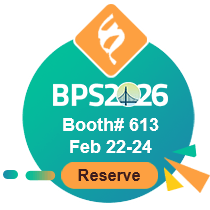Active Recombinant Human TNFRSF18 protein, Fc-Avi-tagged, Biotinylated
| Cat.No. : | TNFRSF18-619H |
| Product Overview : | Biotinylated Recombinant Human TNFRSF18 protein(Gln 26 - Glu 161), fused with Fc and Avi tag, was expressed in HEK293. |
| Availability | February 10, 2026 |
| Unit | |
| Price | |
| Qty |
- Specification
- Gene Information
- Related Products
- Download
| Species : | Human |
| Source : | HEK293 |
| Tag : | Avi&Fc |
| Protein Length : | Gln26-Glu161 |
| Form : | Lyophilized from 0.22 μm filtered solution in Tris with Glycine, Arginine and NaCl, pH7.5. Normally trehalose is added as protectant before lyophilization. |
| Bio-activity : | Immobilized Human GITR Ligand, His Tag at 2 μg/mL (100 μL/well) can bind Biotinylated Human GITR, Fc,Avitag with a linear range of 0.4-6 ng/mL. |
| Molecular Mass : | This protein carries a human IgG1 Fc tag at the C-terminus, followed by an Avi tag (Avitag™).The protein has a calculated MW of 43.3 kDa. The protein migrates as 45-50 kDa under reducing (R) condition (SDS-PAGE) due to glycosylation. |
| Endotoxin : | Less than 1.0 EU per μg by the LAL method. |
| Purity : | >95% as determined by SDS-PAGE. |
| Storage : | For long term, the product should be stored at lyophilized state at -20°C or lower.Please protect from light and avoid repeated freeze-thaw cycles.This product is stable after at: -20°C to -70°C for 12 months in lyophilized state; -70°C for 3 months under sterile conditions after reconstitution. |
| Reconstitution : | It is recommended that sterile water be added to the vial to prepare a stock solution of 0.2 ug/ul. Centrifuge the vial at 4°C before opening to recover the entire contents. |
| Conjugation : | Biotin |
| Gene Name | TNFRSF18 tumor necrosis factor receptor superfamily, member 18 [ Homo sapiens ] |
| Official Symbol | TNFRSF18 |
| Synonyms | TNFRSF18; tumor necrosis factor receptor superfamily, member 18; tumor necrosis factor receptor superfamily member 18; AITR; CD357; GITR; activation-inducible TNFR family receptor; glucocorticoid-induced TNFR-related protein; TNF receptor superfamily activation-inducible protein; GITR-D; |
| Gene ID | 8784 |
| mRNA Refseq | NM_004195 |
| Protein Refseq | NP_004186 |
| MIM | 603905 |
| UniProt ID | Q9Y5U5 |
Not For Human Consumption!
Inquiry
- Reviews (0)
- Q&As (0)
Ask a Question for All TNFRSF18 Products
Required fields are marked with *
My Review for All TNFRSF18 Products
Required fields are marked with *



